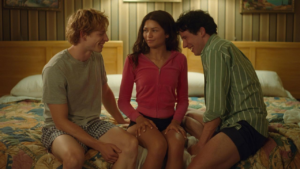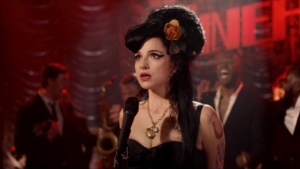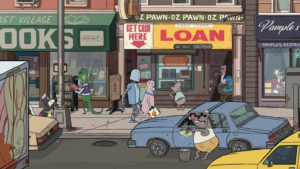Reviewed by GREG KING
Documentary
Directors: Werner Herzog, Andre Singer.

German filmmaker Werner Herzog (Wings Of Desire, Grizzly Man, etc) regards former Russian Secretary General Mikhail Gorbachev as one of the most important politicians of the 20th century. Unlike many of his predecessors, old guard hardliners usually drawn from the ranks of the KGB, the Russian secret police, Gorbachev was a more humble man with a personable demeanour and a sense of humour that made him immensely popular both at home and abroad.
A man with vision he saw the urgent need for reform within his own country. He oversaw the period of perestroika, glasnost, the reunification of Germany, nuclear disarmament, and saw many of the eastern European countries break away from the tyranny and oppressive rule of the communist regimes to embrace freedom and democracy. But many within the former USSR detest him and blame him for the dissolution of the Soviet Republic, the loss of power on the international stage, and the subsequent economic crisis that gripped the country.
A prolific filmmaker with more than 70 films and documentaries to his credit, Herzog sat down with the 87 year old Gorbachev on three occasions over the course of one year for some intimate, insightful and extensive interviews. Herzog is personally invested in this period of history as well. Gorbachev is candid as he talks about his ideals and his role in reshaping Russia. The film largely unfolds in chronological order as Herzog traces Gorbachev’s rise from peasant farm hand to his time at law school, his rise through the ranks of the local political scene to become one of the most powerful men in the world who helped to shape the history of the second half of the twentieth century.
But there is also a sense of regret that he never got to complete his reforms because he was ousted from power in 1991. And when Gorbachev talks about the death of his beloved and supportive wife Raisa there is a strong sense of loss and sadness. “When she died my life was taken from me,” he says simply.
Herzog has gained access to a wealth of archival footage that gives us a strong sense of both place and the man. There are also a number of interviews with some key contemporaries from the era to give more context, but Herzog’s presence in these interviews, with his thick accent, is at times a little too intrusive. Herzog and his editor Michael Ellis have carefully shaped the six hours of footage down to the 90 minutes we see on screen.
There are a number of quirky and idiosyncratic touches to the film’s structure as well that tend to distract from the important subject matter being discussed. But throughout you get a sense of mutual respect between the filmmaker and the politician that shapes their conversations.
But for those with an interest in the history and politics of the twentieth century and the period of the Cold War itself, Meeting Gorbachev is a fascinating documentary and a must see.
★★★



